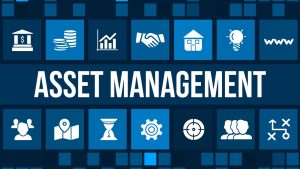Data analytics in a school management system, most commonly referred to as educational data analytics, refers to receiving insights that help educational institutes monitor their student’s progress and assess the feasibility of their syllabus. This helps institutes to consider whether they meet the relevant standards, and such analytics help the management to take into account hidden insights when making decisions. When thinking about a typical school management system, this feature is not the first thing that may come to an institute’s mind. A school management system is typically used to automate repeated mundane processes and to streamline administrative and financial tasks. Hence, educational institutes may make the grave error of investing in a school management system that only offers general features, ignoring the remarkable data analytical capabilities a school management system offered by a good vendor would provide. This article will explore why data analytics should be regarded as a mandatory feature in a school management system.
Five Ways Data Analytics Help Educational Institutes
There are various ways data analytics help educational institutes. School management systems that include this feature have Artificial Intelligence (AI) and Machine Learning (ML) capabilities which use historical data to make predictions whilst also providing futuristic insights. Here is precisely how data analytics helps the management in an educational institute:
Find Out Whether The Courses Offered Are Feasible
Whatever kind of education institute it is, be it a school, a tuition institution or a university, it is essential to carry out an annual review of the courses studied. This requires the administration to consider how students have responded to specific courses. For instance, the percentage of passes and fails and the average number of students that attend the class are essential questions to consider. The autogenerated detailed reports become a helpful tool in this regard.
Monitor the Progress of Your Students
One of the major responsibilities of any educational institute is to monitor the progress of its students. This helps to determine the ranking of an institute, but it is also a great way to consider how effective teachers are in their teaching methods. The combination of everything a student does inside the educational institute accounts to their progress. This includes the grades they receive in each term, their behaviour, extracurricular activities, skills and others. Data analytics detects patterns that help educational institutes to predict how many students will pass or fail in advance through their performance. Hence, where a student is struggling behind, this could be directed to the relevant teacher who could look into ways that can help students perform better. Therefore, data analytics allows educational institutes to provide equal attention to all students. Since it is data-generated, it is an objective assessment of testing the strengths and weaknesses of a student. Thus, by changing their teaching methods and finding innovative ways to help each student become better, the educational institute will be able to provide a personalised experience for each person.
Assess Whether You Meet Governmental or International Standards in Education
In today’s world, education holds an important place. Hence, if it is a school, parents tend to research a lot about which schools are the best for their children. If it is a university, more effort is put in by students to consider whether it is a good place to pursue their tertiary education. It all comes down to the educational institute’s ranking on a national and international level. An educational institute may find it hard to monitor their progress to guarantee a high ranking. By incorporating data analytics, however, schools can compare themselves with the standard of education elsewhere. They can, in other words, monitor their progress in real-time, thereby changing and adapting to the standards required to be recognised as one of the best.
Be Prepared for Future Events
An academic calender is not simply filled with lectures/classes and exams. It consists of a range of other activities, such as events related to clubs and societies and sports. While for some, each sport or organisation will be responsible for organising or sometimes funding for themselves, there is a list of things a school needs to separate funds for. From significant events like awards ceremonies to graduation, a school needs to budget their finances carefully to ensure enough funds are there to pay all academic and ancillary staff, carry out repairs, and more. Data analytics helps in this respect to ensure institutes will not be taken by surprise. Intelligently budget all finances taking into account any possible scenario for which the institute will have to reserve funds with the help of data analytics.
Monitor the Performance of Each Department
While the main focus is on students, to ensure all functions of the educational institute are functioning smoothly, it is important to monitor the performance and progress of each department. From finance to transportation and other administrative departments, each of them can have a performance review monthly. With a school management system, this becomes easier since all departments are integrated into one cloud or web-based solution. Hence, data analytics can compare how slow or effective each department is in comparison to another. By organising the in-house operations of an institute, institutes can also manage their relations with parents more easily.
Ensure Your Course Materials Are Updated
Every few years, new textbooks are published with new information to help students attain skills and knowledge that are most relevant to the modern world. Every time a new edition is published, not all educational institutes will be automatically notified. Hence, an institute could unintentionally be teaching an outdated syllabus for a long time. Usually, the librarian will manually take the time to research suitable course books for subjects and check whether they are updated manually. This task can be easily automated through data analytics, which can inform institutes of the recommended standard textbooks and the latest edition when it is released.
So Many Possibilities With One Solution
A well-rounded school management system is hard to come by when you are looking for a range of customisable features that secures your data and offer expert insights. Vendors such as Tigernix, however, have created a compact solution which packs all of the needs of the education industry into one. It recognises the importance of data analytics and offers multiple hidden insights, helping managers make informed decisions. It is an excellent asset for the administration and acts as a tool which assists teachers in curating their lessons according to their students. Automate, save your overall costs, and manage your resources with a single school management system.






